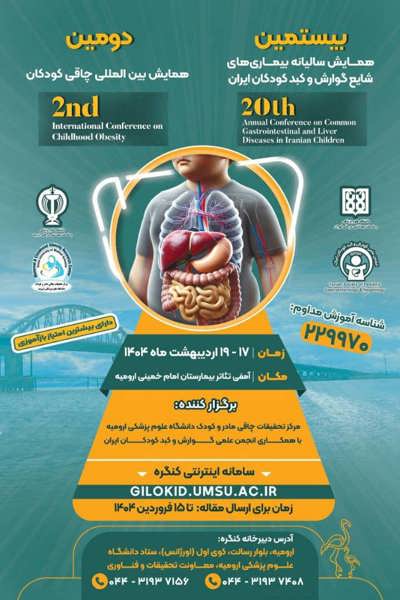0% Complete

صفحه اصلی
/
بیستمین همایش سالیانه بیماری های شایع گوارش و کبد کودکان ایران و دومین همایش بین المللی چاقی کودکان
نویسندگان :
کلمات کلیدی :
چکیده :
لیست مقالات بایگانی شده
Milad Jalilian - Raheleh Rasad
Amir Mohammadi - Saeed Hosseinpoor - Zahra Atafar - Solmaz Lalehzari
Nazanin Mozaffari - Mohsen Maleki
Ghazal Akhavan Masoumi - Yousef Mohammadpour - Fatemeh Soltani - Vahid Hoseinpour - Rasul Bidel Nikoo - Saeideh Rahimi
Maryam Maleki - Shiva Mohammadi - Parisa Tajdini - Sajjad Rahimi Pardanjani - Fatemeh Moghaddas
Masoomeh Gholizadeh - Saeid Ghavamzadeh
Sanaz Yari - Paniz Bahari - Sara Arefhosseini

